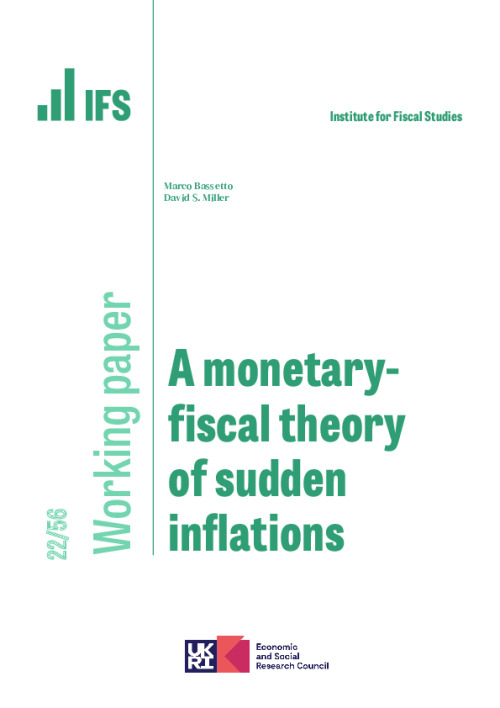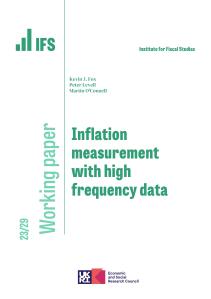Downloads

WP202256-A-monetary-fiscal-theory-of-sudden-inflations.pdf
PDF | 596.17 KB
This paper posits an information channel as the explanation for sudden inflations. Consumers saving via nominal government bonds face a choice whether to acquire costly information about future government surpluses. They trade off the cost of acquiring information about the surpluses that back bond repayment against the benefit of a more informed saving decision. Through the information channel, small changes in the economic environment can trigger large responses in consumers’ behavior and prices. This setting explains why there can be long stretches of time during which government surpluses have large movements with little inflation response; yet, at some point, something snaps, and a sudden inflation takes off that is strongly responsive to incoming fiscal news.
Authors

Research Associate Federal Reserve Bank of Minneapolis
Marco is a Research Associate at the IFS and currently is a Senior Research Economist at the Federal Reserve Bank of Minneapolis.

Principal Economist Federal Reserve Board
Working Paper details
- DOI
- 10.1920/wp.ifs.2022.5622
- Publisher
- Institute for Fiscal Studies
Suggested citation
Bassetto, M and Miller, D. (2022). A monetary-fiscal theory of sudden inflations. 22/56. London: Institute for Fiscal Studies. Available at: https://ifs.org.uk/publications/monetary-fiscal-theory-sudden-inflations (accessed: 18 April 2024).
More from IFS
Understand this issue

The way Chancellors respond to economic news adds to our debt - here's why
1 March 2024

Spring Budget 2024: the Chancellor’s options

Scottish Budget 2024-25: IFS analysis
Policy analysis

Spring Budget 2024
6 March 2024

Oil and gas make Scotland’s underlying public finances particularly volatile and uncertain
27 March 2024

Living standards since the last election
21 March 2024
Academic research

Inflation measurement with high frequency data
18 October 2023

6th World Bank/IFS/ODI Public Finance Conference | Driving Progress: Public Finance and Structural Transformation

Call for papers: 5th World Bank/IFS/ODI Research Conference
3 April 2023